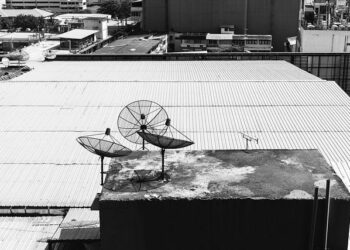In a recent statement addressing escalating tensions in the Middle East, French President Emmanuel Macron placed significant responsibility on Iran for the ongoing destabilization of the region. Speaking amid growing concerns over security and geopolitical instability, Macron underscored Tehran’s role in fueling conflict and urged for renewed diplomatic efforts to restore peace. This development adds a critical dimension to the complex international discourse surrounding Iran’s influence, reflecting broader challenges faced by global powers in managing regional conflicts.
France’s Macron underscores Iran’s pivotal role in Middle East instability
French President Emmanuel Macron has placed significant emphasis on Iran’s central influence in the ongoing turmoil engulfing the Middle East. Speaking at a recent international forum, Macron asserted that Tehran’s actions have been instrumental in fueling conflicts across several countries in the region. These interventions include direct support to armed groups, as well as political backing for regimes accused of curbing democratic aspirations and perpetuating instability.
According to Macron, addressing the root causes of Middle Eastern unrest requires a nuanced understanding of Iran’s ambitions and its network of alliances. He outlined several key factors contributing to the destabilization:
- Expansion of proxy militias in Syria, Iraq, and Yemen
- Persistent undermining of diplomatic efforts aimed at peaceful resolution
- Escalation of sectarian tensions through ideological and financial support
| Country | Iranian Influence | Impact on Stability |
|---|---|---|
| Syria | Armed militia support | Prolonged civil conflict |
| Yemen | Backing Houthi rebels | Humanitarian crisis |
| Iraq | Political interference | Government fragmentation |
Analyzing the regional impact of Iran’s actions and French diplomatic strategies
France’s position under President Emmanuel Macron underscores a growing concern over Tehran’s role in exacerbating tensions across the Middle East. French diplomats have pointed out that Iran’s support for proxy groups and its nuclear ambitions are key drivers behind the region’s increasing instability. Paris insists on a dual approach-emphasizing strict diplomatic engagement while maintaining readiness for coordinated international pressure should Iran’s activities threaten regional security further.
- French diplomatic efforts focus on: fostering dialogue among Gulf Cooperation Council states.
- Strengthening alliances with European and Middle Eastern partners to monitor Iran’s activities.
- Promoting multilateral negotiations aimed at nuclear non-proliferation.
- Supporting humanitarian concerns impacted by regional conflicts fueled by Iranian-backed militias.
| French Strategy | Objective | Impact |
|---|---|---|
| Diplomatic Summits | Boost regional dialogue | Reduced tensions |
| Economic Sanctions | Limit nuclear program funding | Weakened military proxies |
| Coalition Security Measures | Enhance regional defense | |
| Coalition Security Measures | Enhance regional defense | Increased security coordination |
| Objective | Proposed Action | Expected Outcome |
|---|---|---|
| Contain Proxy Militias | Target financial networks | Reduce armed groups’ operational capacity |
| Limit Nuclear Ambitions | Strengthen monitoring by IAEA | Ensure compliance with agreements |
| Foster Regional Stability | Support multilateral talks | Decrease sectarian tensions |
In Summary
In summary, President Emmanuel Macron’s remarks underscore France’s growing concern over Iran’s role in regional instability. As tensions continue to mount across the Middle East, Paris is calling for increased international vigilance and diplomatic efforts to curb Tehran’s influence. Observers will be closely watching how these developments impact broader geopolitical dynamics and ongoing negotiations. For continued updates on this evolving story, stay tuned to ForexLive.
















